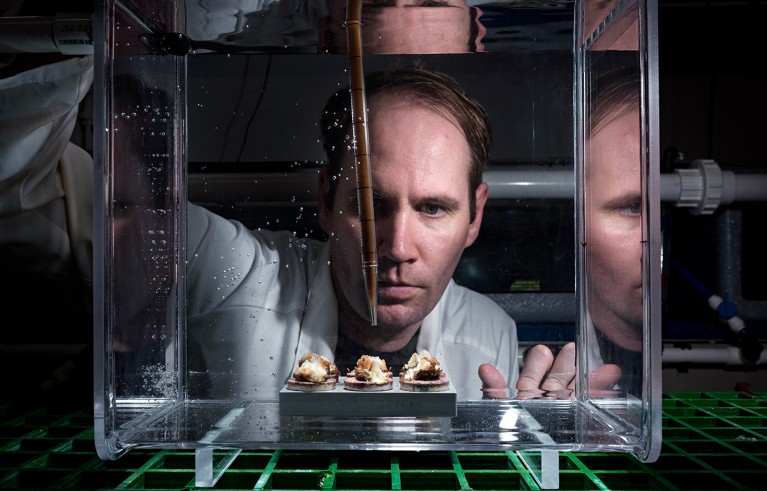“Studying marine conservation is hard. Marine ecosystems are degrading. Coral reefs are bleaching: by 2060, without significant emissions reductions, mass coral bleaching on the Great Barrier Reef could be an annual event.
But corals can adapt to warming waters. Enhancing coral-reef heat tolerance is the subject of my research in the Reef Restoration and Adaptation Program at the Australian Institute of Marine Science (AIMS) in Townsville.
Coral bleaching occurs when the coral becomes heat-stressed and ejects or loses its coloured symbionts. Coral cannot survive without these photosynthetic microalgae, which live inside the coral tissue and provide it with sugars in return for a stable home. But some symbionts can survive without the coral — and, being microorganisms, can reproduce and evolve rapidly.
For ten years, the team at AIMS has been growing coral symbionts in the laboratory while gradually raising the heat. Each time the symbionts adapt, we push the temperature up a bit. They can now survive a constant 31 °C, a condition not experienced anywhere on the Great Barrier Reef.
In this photograph, from November 2023, I am introducing our latest heat-evolved symbionts — the brown substance inside the pipette — into the bleached corals at the bottom of the tank. Our evolved symbiont–coral pairings perform well in the aquarium. We now have a permit to start small-scale field trials out on the reef. We will measure whether these innovative host–symbiont combinations are stable and can maintain their heat tolerance after a full annual climate cycle in the wild.
Our hope is that, if the reef ever needs to be replenished, the corals we deploy will be able to withstand future heat stress, thanks to our experimentally evolved symbionts.”


 How I use tide gauges to develop geospatial maps
How I use tide gauges to develop geospatial maps
 I study small organisms to tackle big climate problems
I study small organisms to tackle big climate problems
 I started fossil hunting in my 60s — now I have more than 2,000 pieces
I started fossil hunting in my 60s — now I have more than 2,000 pieces



